Tips to Find the Best Healthcare Provider Partners in Mumbai
Finding the right healthcare provider partners is crucial for businesses and organizations in Mumbai looking to ensure the well-being of their employees or members.

Finding the right healthcare provider partners is crucial for businesses and organizations in Mumbai looking to ensure the well-being of their employees or members. A strong healthcare partnership can lead to improved employee health, reduced absenteeism, and increased productivity. This blog post offers practical tips for finding the best healthcare provider partners in Mumbai.
1. Define Your Needs and Objectives:
Before starting your search, clearly define your organization's healthcare needs and objectives. Consider:
Employee Demographics: Understand the age, health status, and healthcare needs of your employees.
Coverage Requirements: Determine the scope of coverage you need, including inpatient, outpatient, specialized care, and wellness programs.
Budget: Establish a budget for your healthcare partnership.
Geographic Coverage: Consider providers with a strong network of hospitals and clinics across Mumbai or specific areas where your employees are located.
Specific Services: Do you need specific services like occupational health, mental health support, or specialized programs for certain conditions?
2. Research Potential Partners:
Online Directories: Use online directories like Medindia to find lists of doctors, hospitals, and clinics in Mumbai.
Insurance Company Networks: Explore the network of hospitals and healthcare providers associated with top health insurance companies in India, such as Star Health & Allied Insurance, HDFC Ergo General, and Niva Bupa Health Insurance. These companies often have extensive networks in Mumbai.
Corporate Tie-ups: Look into hospitals that already have established corporate partnerships. Ashtvinayak Hospital, for example, lists several corporate clients on its website. This can indicate experience in serving the needs of organizations.
Employee Recommendations: Seek recommendations from your employees. They may have positive experiences with specific providers.
3. Evaluate Key Metrics:
When evaluating potential partners, consider these key metrics:
Claim Settlement Ratio: This is relevant if you are considering a health insurance company as a partner. A high claim settlement ratio indicates that the company is likely to pay out claims promptly.
Network Hospitals: Ensure the provider has a wide network of hospitals, including both inpatient and outpatient facilities, that are convenient for your employees.
Solvency Ratio: If partnering with an insurance company, check their solvency ratio, which indicates their financial stability.
Customer Service Reputation: Look for providers with a strong reputation for customer service and a smooth claim process. Check online reviews and testimonials.
Accreditations: Look for providers with accreditations like NABH and QAI, which indicate quality standards.
4. Consider Specific Services and Programs:
Wellness Programs: Does the provider offer wellness programs, health check-ups, or preventative care initiatives?
Specialized Care: If your employees have specific needs, ensure the provider has expertise in those areas (e.g., cardiology, oncology, orthopedics).
Employee Assistance Programs (EAPs): Consider providers that offer EAPs for mental health support and counseling.
Home Healthcare: For companies that need to support employees with long-term conditions, consider if the provider has home healthcare services. HCAH (Healthcare at Home) is one such provider.
5. Assess Communication and Transparency:
Communication Channels: How does the provider communicate with patients and organizations? Do they offer online portals, mobile apps, or dedicated account managers?
Transparency in Pricing: Ensure the provider is transparent about their pricing and billing practices.
Reporting and Data Analysis: Can the provider offer data and reports on employee health trends and utilization of services?
6. Visit Facilities and Meet with Staff:
If possible, visit the facilities of potential partners and meet with their staff. This will give you a better sense of their environment, quality of care, and patient experience.
7. Review Contracts and Agreements Carefully:
Thoroughly review all contracts and agreements before finalizing a partnership. Pay close attention to terms and conditions, coverage details, payment schedules, and dispute resolution mechanisms.
By following these tips, organizations in Mumbai can find the best healthcare provider partners to meet their specific needs and ensure the health and well-being of their employees.
Related
-
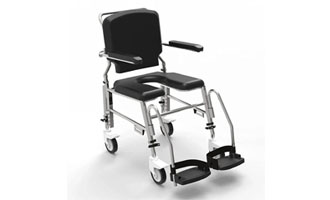
Top 3 Types of Wheelchairs with Built-In Toilet Seats: Enhancing Dignity and Convenience
-

Caregiver Services for Post-Surgery Recovery in Mumbai
-

The benefits of elder care services
-

Smart Tips to Buy a Folding Electric Wheelchair Online
-
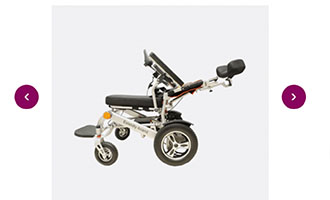
The Pros and Cons of Buying an Electric Wheelchair Online
-

Best Physical Therapists in Mumbai For Home Treatment
-

Apps that keep you healthy
-

How to Choose the Right Mobility Chair for Seniors in Mumbai
-

How to Choose the Right Health Service Provider for Your Needs
-

A Complete Guide to Wheelchair Types and Their Prices in India
-

How to keep going with limited mobility
-

Mobility aids to the rescue
-

Tech that makes life better
-

Best Online Stores to Buy Disability Equipment in Mumbai
-

Top 10 Electric Wheelchairs to Buy Online in India: 2025 Edition
-

Breaking Barriers: Why Urban Spaces Must Be More Wheelchair-Friendly
-

How to Choose Reliable Elder Care Assistance Providers
-
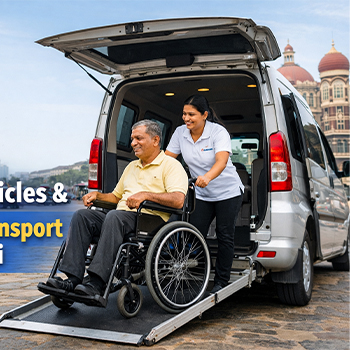
What Is an Adapted Vehicle? How to Book Accessible Transport in Mumbai
-

Cost of Caretaker Services in Mumbai: What to Expect in 2025?
-

Detailed Guide On Best Elder Care Services in Mumbai
-

Advancements in Treatment and Care for Spina Bifida: What You Need to Know
-

Elderly Care Services Offered by Modern Health Providers
-

Senior care top tips
-

A Guide to Buy Mobility Equipment Online
-

Enhancing Quality of Life
-

The Ultimate Guide to Wheelchair Accessories: Boost Your Independence Today
-

Tips to Select the Best Caretaker Services in Mumbai
-

Navigating Mumbai with Ease: Your Guide to Reliable Mobility and Elder Care Solutions
-

The Essential Guide to Finding the Best Patient Care Taker in Mumbai
-
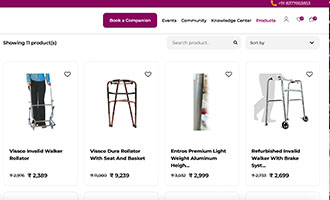
A Comprehensive Guide to Buying Mobility Products for Seniors in India
-

Insurance is key to inclusion
-
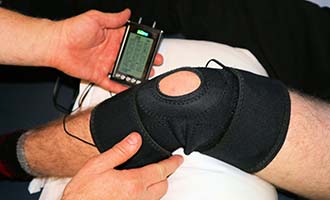
Rehab: The road to recovery
-

Dealing with the odds
-

Apps that simplify life
-

Step into healthy living
-

The benefits of community care
-

Adapt your vehicle
-
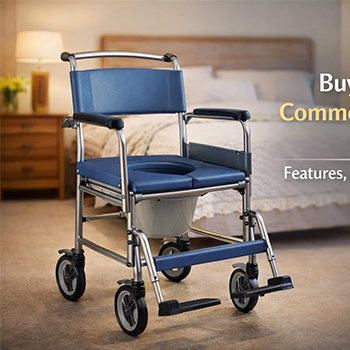
Buy Vissco Commode Wheelchair Online: Features, Benefits and Best Deals
-

Top Emergency Apps Every Disabled Person Should Have
-

Who make for ideal caregivers?
-

What Makes a Great Support Companion? A Peek Into MobiCrews Training and Ethos
-

Tips for Choosing the Right Health Service Provider
-

What is a Health Care Service Provider?
-

Tips for Buying the Best Mobility Equipment for Your Needs
-

A Guide to Choosing the Right Handicapped Equipment for Your Needs
-

Choose your wheelchair well
-

Apps make caregiving easier
-

Celebrating Carers Week : The Unsung Heroes Behind Every Confident Step
-

How to Choose the Right Caretaker Agency in Mumbai
-

How Assistive Technology is Transforming Mobility Independence
-

Elder Care Services in Mumbai: Comparing In-Home Care vs. Assisted Living Option
-

Dont stop moving!
-

Smart Home Care Equipment for Seniors That Make Life Easier
-

Different Types of Home Health Care Services in India
-

Folding vs Non-Folding Electric Wheelchairs: Which One Should You Buy
-

What do companion caregivers do?









